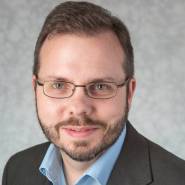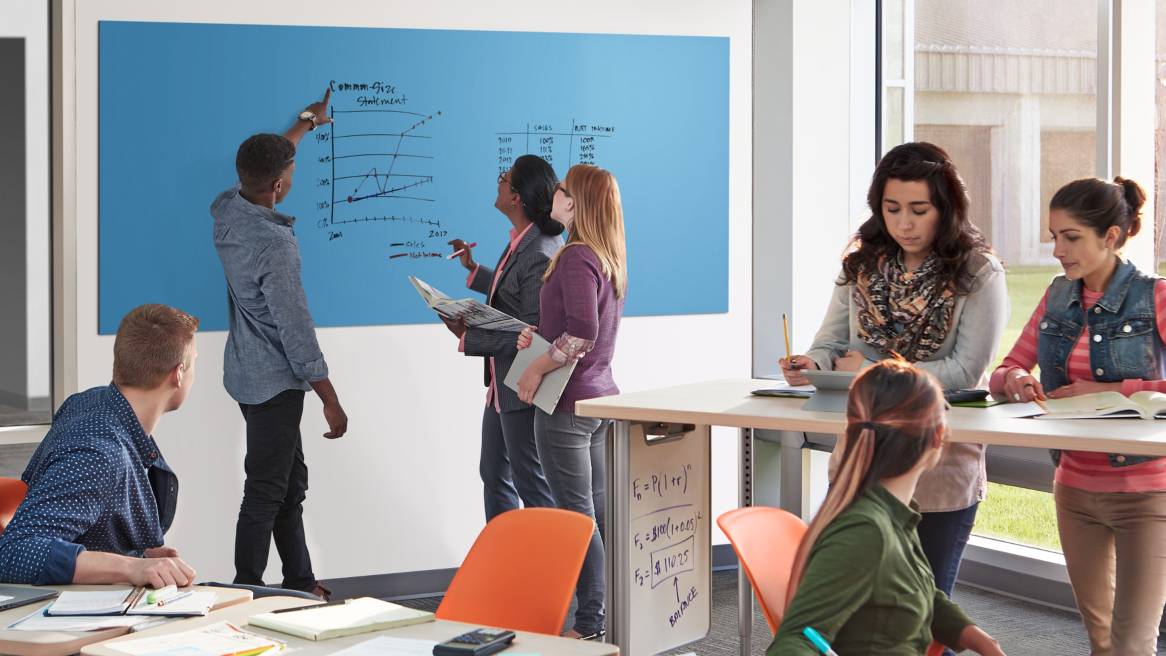Three Perspectives on the Future of Higher Education
How will flipped learning, 21st century skills and virtual and augmented reality change how students learn?
By Robert Talbert, Grand Valley State University professor
The following article is contributed by Robert Talbert. A professor of mathematics at GVSU, Talbert is on a year-long sabbatical working at Steelcase as a scholar-in-residence.
Nearly 1000 years have passed since the founding of the first university. For most of this time, higher education has looked and operated in many of the same ways. However, changes in technology and globalization have altered the nature of learners and the world in which they operate. How will higher education respond, and what does the future of higher education look like?
These questions were the focus of a session at the recent EDUCAUSE Learning Initiative (ELI) conference in New Orleans entitled “A Flipped Future? Lightning Talks on Teaching.” I was one of three speakers who spoke on the future of higher education, sharing the stage with MJ Bishop, Director of the Kirwan Center for Academic Innovation at the University System of Maryland; and Kyle Bowen, Director of Educational Technology at Penn State University.
Flipped Learning
My talk focused on flipped learning, a pedagogical technique in which lectures are mostly removed from class meetings. Students gain first contact with new material through structured self-teaching. Reclaimed class time is then used for active learning experiences. Through flipped learning, students discover how to learn on their own and gain experience solving difficult problems in a way that promotes collaboration.
Flipped learning in higher education emerged in the early 2000s and has seen rapid growth since the beginning of this decade. In my talk, I proposed four “grand challenges” for flipped learning to continue this upward momentum over the next several years:
- Craft a common definition of flipped learning
- Produce a body of rigorous empirical research that establishes big results about the effectiveness of flipped learning
- Create a global library of open educational resources that support flipped learning in critical subject areas
- Build a global network of local communities of practice
21st Century Skills
MJ Bishop followed my talk by speaking about the importance of “21st century skills” – collaboration, creativity, critical thinking, and problem solving. He advocated flipping the curriculum for these subjects by offering digital certifications or “badges.” Students could learn specifically about these skills in addition to the content needed for their majors by developing portfolios showing competency in those areas. Those materials can come from existing coursework or could be the result of extra, or co-curricular activity, rather than as part of a dedicated course. Through this evidence, the learner can earn a digital badge that can be affixed to their LinkedIn profile. Employers and other interested parties can click on the badge and see the portfolio.
Virtual and Augmented Reality
Finally, Kyle Bowen spoke about virtual and augmented reality (AR/VR). Bowen noted that until recently, it would have been preposterous to think of people strapping a computer to their faces. Today, however, relatively simple and inexpensive technology allows users to completely immerse in artificial worlds. The applications to higher education are numerous. For example, he noted, learners studying agriculture in northern states like Pennsylvania can only study crops for a few months out of the year due to weather. But with AR/VR, lifelike simulations of crops can be studied year-round and without the expense of equipment and chemicals. Bowen noted that we have only just begun to seriously study the implications of AR/VR in higher education, and in the near future universities may need to have “virtual plants” to go along with their current physical plants to manage AR/VR resources.
All of these talks and the discussion that followed had several points in common.
- The future of higher education will be more individualized and student-centered than in the past. Where traditional higher education has focused on mass transmission of information through lectures, future higher education might allow for differentiated instruction via flipped learning, individually tailored digital certifications, and AR/VR technologies.
- The future of higher education will focus less on content coverage and more on skills and experiences that go beyond content. Higher education has traditionally operated on a scarcity model of information, with professors acting as gatekeepers to knowledge. The reality is much different today, and in the future both pedagogy and technology will assume free, 24/7 access to information.
- Teaching techniques that rely on transmitting information will thus be obsolete, and the focus in learning will shift to meta-skills such as problem solving and collaboration, aided by technology.
- The role of learning spaces in the future will evolve along with pedagogy and technology. With large lectures becoming obsolete, the makeup of learning spaces will change to designs that support ubiquitous technology, collaboration, and personalized learning. Such spaces will be designed with flexibility and adaptivity in mind, as there will be as many ways for learners to interact with ideas as there are learners and ideas.
Higher education with these and other changes will retain some of the best aspects of the past centuries of the university, such as rigorous academics and challenging creative work. But, it will do so fully embracing pedagogies, technologies and spaces that serve the needs of the individual student. That is a future worth looking forward to.
 Robert Talbert is a professor in the Mathematics Department at Grand Valley State University. He is on a year-long sabbatical from his faculty position to work at Steelcase as a scholar-in-residence. He’ll be conducting research on teaching and learning, consulting with Steelcase Education on research and design initiatives, and providing support and professional development to Steelcase Education employees and college and K12 faculty on active learning.
Robert Talbert is a professor in the Mathematics Department at Grand Valley State University. He is on a year-long sabbatical from his faculty position to work at Steelcase as a scholar-in-residence. He’ll be conducting research on teaching and learning, consulting with Steelcase Education on research and design initiatives, and providing support and professional development to Steelcase Education employees and college and K12 faculty on active learning.


